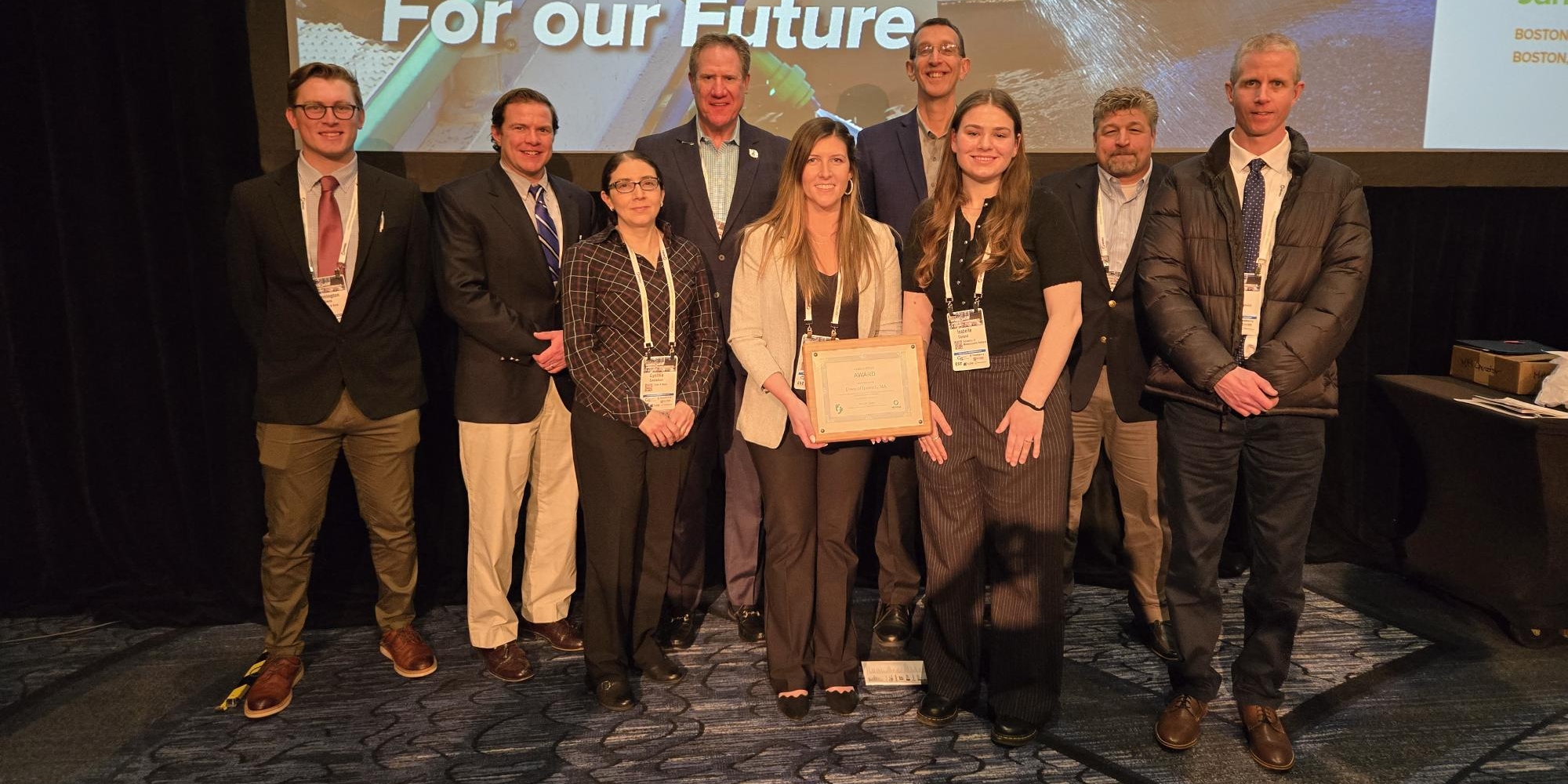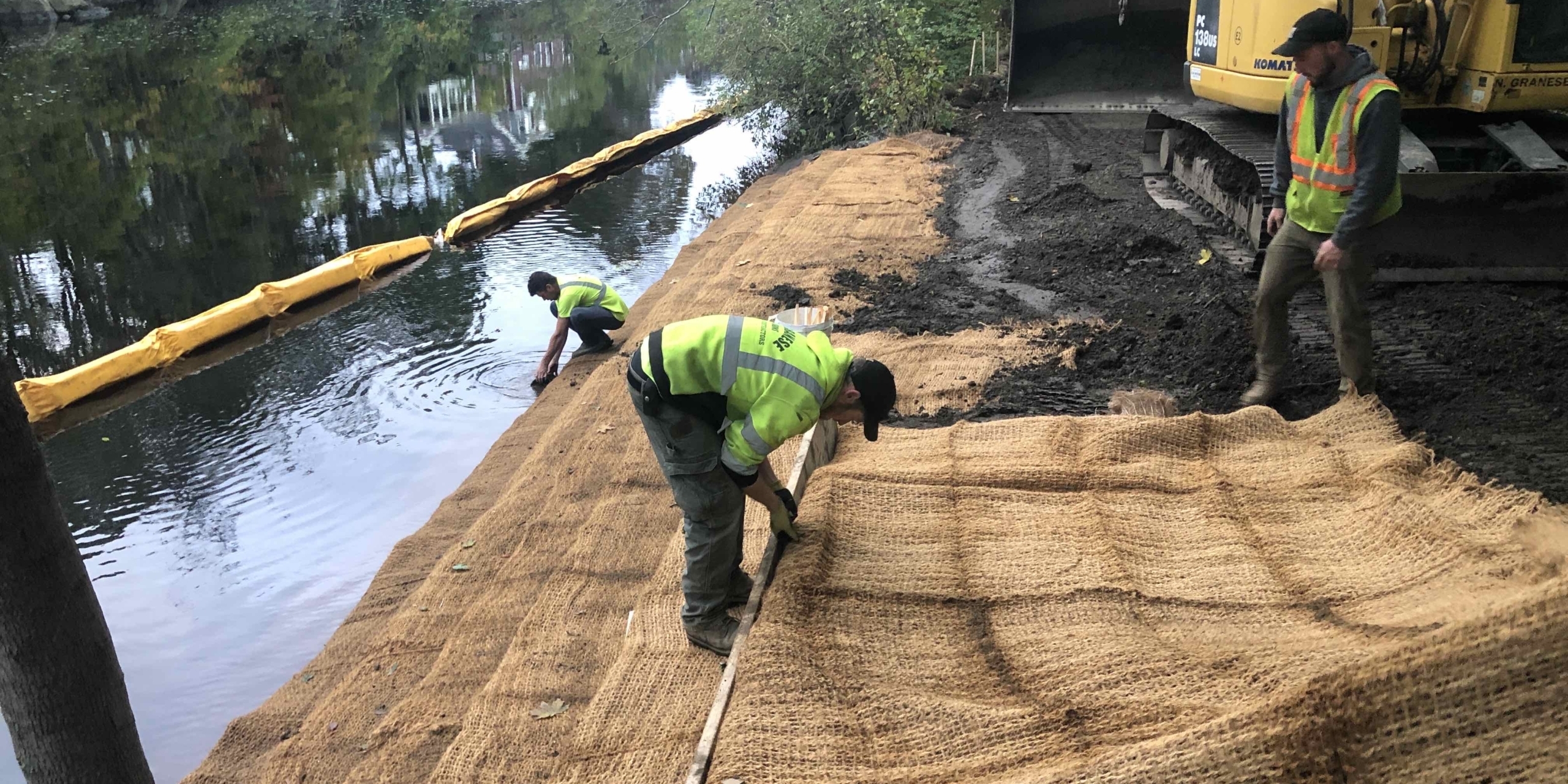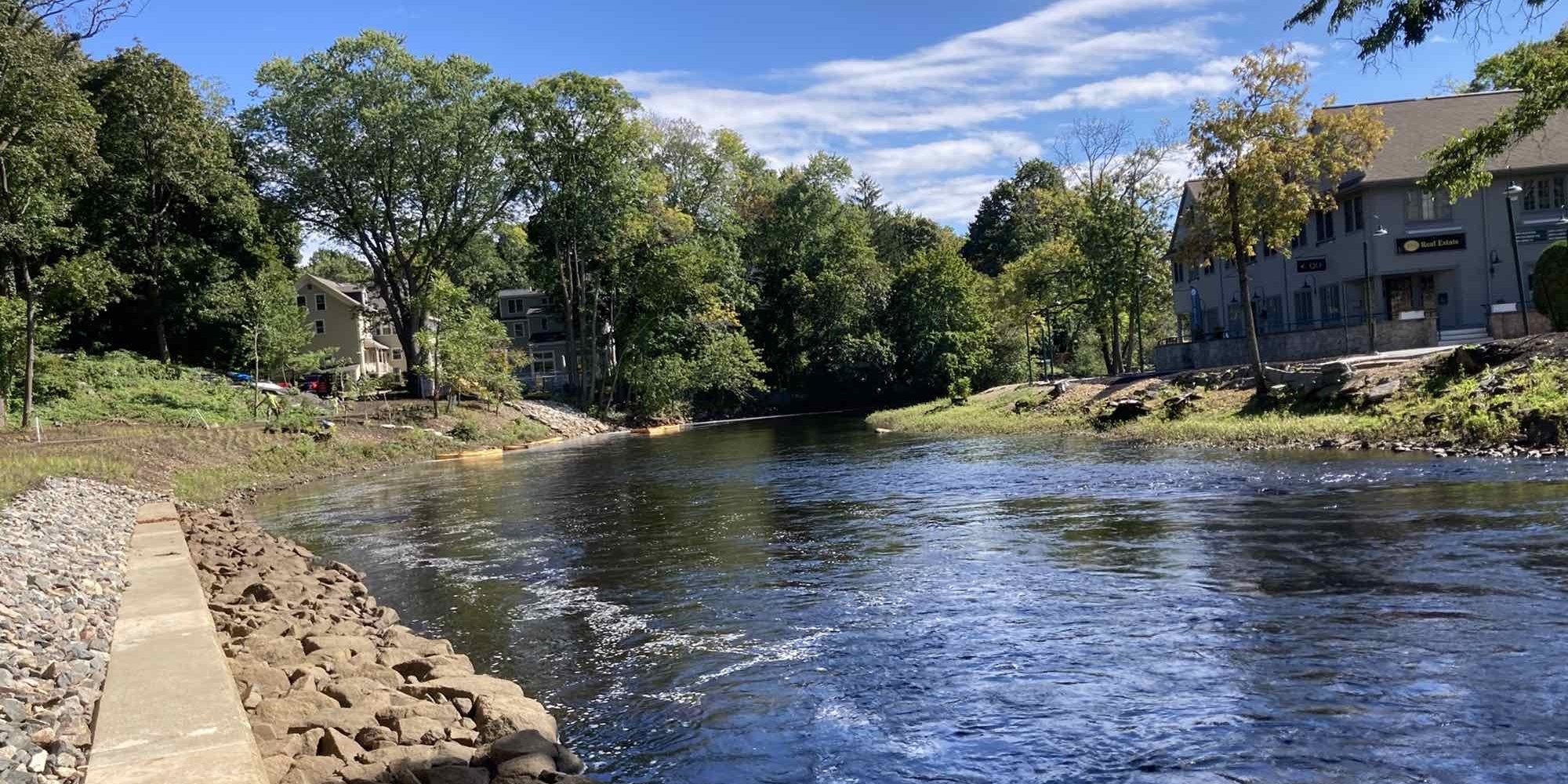Ipswich Sewer Resiliency Project Wins NEWEA Green Steps Award

At the recent New England Water Environment Association (NEWEA) Annual Conference, the Town of Ipswich received the Green Steps Award for the Tighe & Bond-led Ipswich, MA Sewer Siphon Resiliency & Biostabilization Project. The Green Steps Award celebrates stormwater and wastewater projects that feature innovative and sustainable design. We worked with the Town of Ipswich and other project partners to develop a plan to protect the Town’s critical sewer infrastructure while incorporating nature-based solutions, allowing the system to better adapt to extreme weather-related events.
The project involved stabilizing segments of riverbank along the Ipswich River that contains sewer infrastructure running parallel to the river. The existing banks and riverbed had been eroded by the effects of sea level rise, intense storm events, and vegetation loss, leaving the sewer pipes exposed and susceptible to damage: the consequences of system failure would have been detrimental to the river, the downstream clam flats, businesses and public health.
The project implemented nature-based solutions to stabilize the banks from erosion, while also providing biological uplift for river riparian and aquatic communities through the use of native and ecosystem-adapted plantings. Our team utilized a living shoreline bioengineering approach to restore the area, focused on a hybrid of toe stone with low marsh through tidal buffer zone plantings along the streambank.

Installing the soil- and coconut coir-based revetments.
Natural revetments use a combination of soil and coconut coir to accommodate a range of tidal and runoff channel flows. Removal of invasive species and revegetation with native plantings and shrubs resulted in improved water and air quality, stabilized the soil and bank, provided habitat, and further enhanced the waterway as a scenic community asset.
Now constructed, the project has improved resiliency to a portion of the riverbank along the Ipswich River, where increased river velocities and debris from sea level rise and intense rain events had previously threatened the sewer infrastructure.

After construction, the riverbank is now better stabilized to protect against erosion.
Learn more about this project in the video below.


